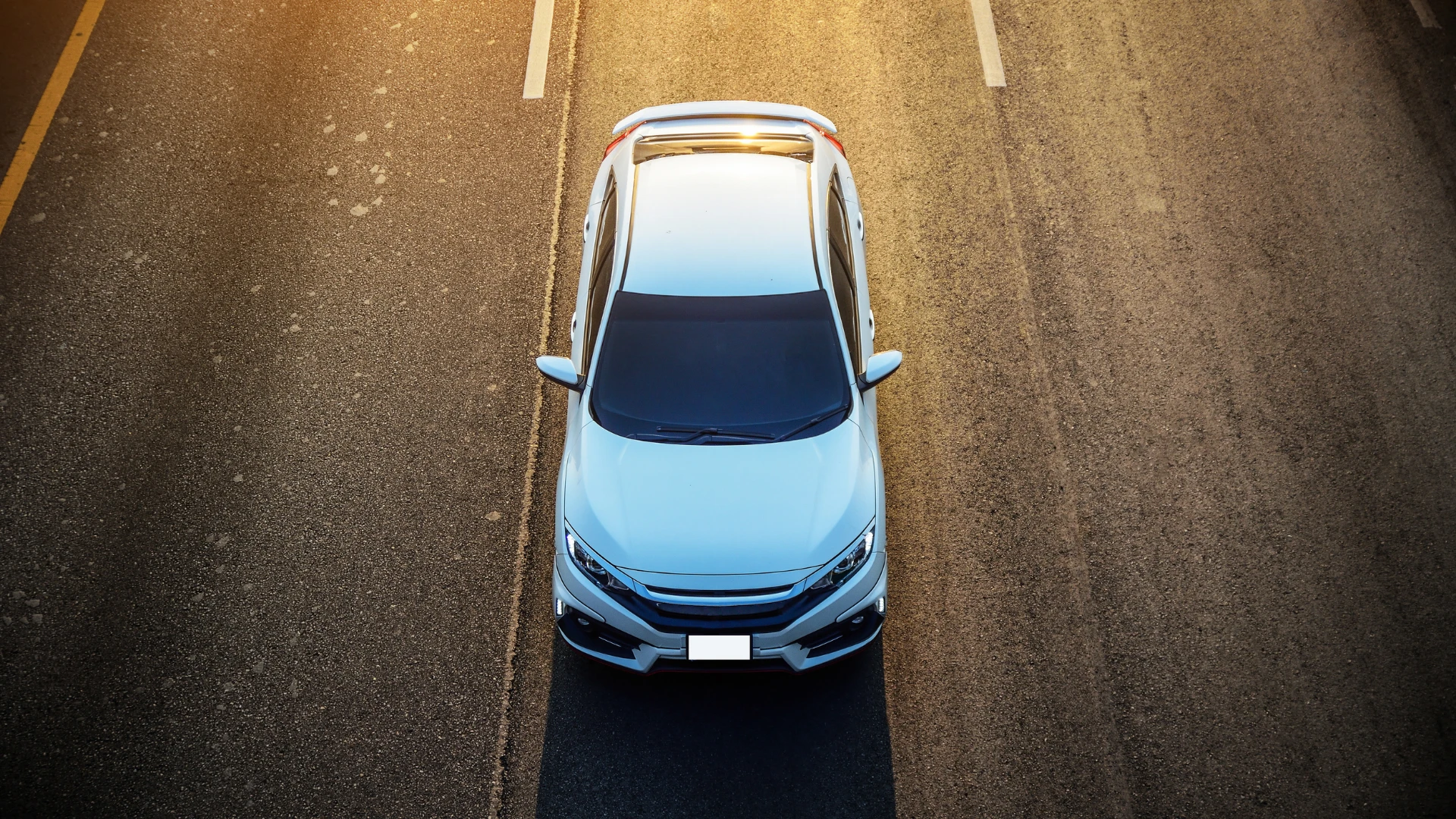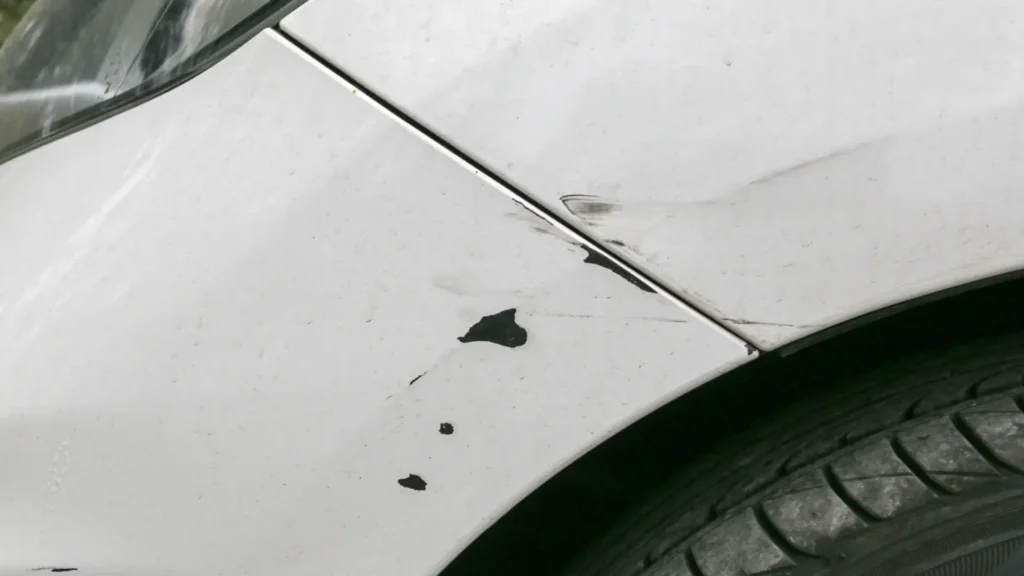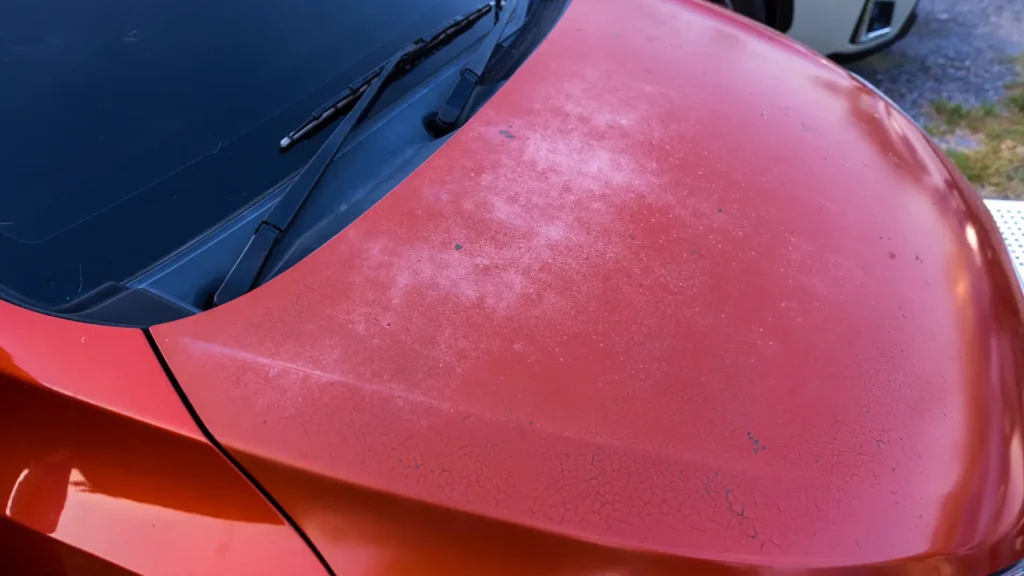To answer this question as briefly as possible: No, a high-quality car wrap, or even specialized PPF wraps, will not harm your paint when applied and removed correctly. In fact, car wraps often protect your factory finish. It’s more of a myth that car wraps damage paint, and as more and more car enthusiasts and commercial fleet owners take advantage of this service, vinyl wraps are a more cost-effective alternative to paint when it comes to changing your vehicle’s look, and there are added benefits for your existing paint.
Are Car Wraps Safe For Your Paint?
How Wraps Act As A Protective Layer
Vinyl car wraps actually act as a protective shield for your paint when done right. A properly installed wrap forms a barrier against UV rays, road debris, and minor scratches, preserving your paint underneath. Rather than causing chips or fading, quality car wraps take the brunt of sunlight and small stone hits so your original paint doesn’t have to.
Addressing Common Myths Around Wrap Damage
The notion that “a wrap will damage the paint” is largely rooted in seeing bad outcomes from low-quality materials or botched removals. When high-grade vinyl and proper methods are used, the wrap will come off cleanly without harming your paint. Even luxury car owners and race teams use wraps to protect expensive paint jobs while showcasing stunning designs.
When Wraps Can Cause Paint Problems
Cheap Vinyl or Inexperienced Installers
That said, not all wraps are created equal. Problems typically arise only in certain cases: for example, applying a wrap over pre-existing paint damage can make things worse when the film is removed. If a car’s paint is already compromised, a vinyl wrap may pull up those weak flakes. Extremely cheap vinyl or old, degraded wraps can crack or bond too aggressively, making removal difficult.
Poor Paint Conditions or Rust
These issues aren’t because wraps are inherently bad; it’s because of poor conditions or materials. Think of a wrap as a protective cover. If the surface beneath is rusted or unstable, you might see trouble. But applied on a sound paint surface, a quality car wrap will keep that paint pristine by shielding it from hazards in the environment.
How Quality Materials & Installation Prevent Paint Damage
Importance of Certified Wrap Films (3M, Avery Dennison)
Quality matters a whole lot in determining whether a wrap might affect your paint. High-quality vinyl films and PPF wraps from top manufacturers are engineered for safe removal and paint-safe adhesives. Brands like 3M and Avery Dennison spend years on R&D to ensure their automotive films stick well but also peel off without residue or damage.
In contrast, bargain off-brand wraps may use harsher adhesives or inferior materials that could damage the clear coat on removal or degrade faster. It truly is a case of “you get what you pay for.” Using premium vinyl is crucial not just for looks and durability, but for protecting your vehicle’s paint when the wrap comes off.
Role of Installation Environment (Indoor, Clean, Temperature-Controlled)
Experienced installers know how to prep the car’s surface properly, cleaning off all dirt, wax, and contaminants, and how to apply the vinyl with correct techniques. This prevents issues like bubbles, wrinkles, or improper adhesion that could potentially lead to paint problems. A skilled wrap technician also evaluates your paint quality. When installed on a smooth, clean factory finish, a vinyl car wrap actually helps preserve that paint for the life of the wrap.
Toronto Car Wrap uses a climate-controlled indoor facilities for wrapping vehicles, especially large truck wraps, to avoid dust, moisture, or temperature issues during installation. This level of quality control ensures optimal vinyl adhesion and fewer chances of paint damage. A clean, controlled workspace and meticulous technique mean your truck wraps or car wraps will have a flawless finish and protect the surface underneath as intended.
Why PPF Wraps Are Even Safer for Paint
The same goes for PPF wraps, which are clear polyurethane films applied for ultimate paint protection. A high-end PPF, like XPEL or 3M’s Paint Protection Film, will safeguard your car’s paint from rock chips and scratches and come off without a trace when professionally removed. These films are designed for paint preservation. Whether you’re doing an advertising wrap or a clear protective film, invest in good materials and expert installers. Your vehicle’s paint will thank you.
How Long Should You Keep a Wrap On?
Wrap Lifespan and Timely Removal
Another quality factor is knowing when to remove or replace your wrap. Vinyl wraps and PPF wraps are durable, but they aren’t meant to be left on indefinitely. If you keep a wrap on well beyond its recommended lifespan, the adhesive can harden and the film becomes brittle. This makes removal trickier – think of an old sticker that flakes apart – and increases the risk of paint damage or leftover residue when peeling it off.
The solution is simple: don’t overstretch the lifespan. Regularly inspect your wrap’s condition, and plan to have it professionally removed and/or replaced within that timeframe. By doing so, the wrap will come off in large, clean pieces as it should, leaving your paint as beautiful as the day the wrap went on.
Proper Maintenance
Proper maintenance also helps ensure safe removal later. Taking care of a wrapped vehicle isn’t hard, but a few habits make a difference. Hand-washing is usually gentler on wraps than automatic car washes with harsh brushes, which could lift edges. Keeping your wrap clean of road grime and bird droppings will prevent any chemical staining of the vinyl that could affect the underlying paint.
If you have PPF wraps, an occasional check-up is wise – though PPF is clear, you want to spot any lifting edges or yellowing early. Treat your wrap well and it will not only look better longer, but also ensure the paint beneath stays perfect when the film is taken off.
The Right Way to Remove a Car Wrap
Risks of DIY Removal
Perhaps the biggest risk of paint damage comes during wrap removal – especially if attempted by an untrained hand. It might be tempting to peel off a wrap yourself like a giant sticker, but this is where many horror stories originate. Experts strongly advise against DIY removal for good reason. Peeling off a vinyl wrap incorrectly can pull up paint or clear coat, particularly on edges or if the adhesive has bonded strongly over time.
How Professionals Protect Paint During Removal
Professional wrap installers have the proper tools and techniques to remove the film safely. They use heat guns or steam to gently soften the adhesive, specialized solvents or citrus-based cleaners to dissolve residue, and slow, consistent peeling at the correct angle. This careful process ensures the wrap comes off without gouging the paint.
If your wrap needs removal, the best course is to take it back to the shop that installed it. They will know the type of vinyl used and the appropriate removal method. At Toronto Car Wrap, for instance, our team is well-versed in safely removing old wraps, whether it’s a partial wrap on a car or a full truck wrap while keeping the factory paint intact. We’ve seen it all – vinyl left on too long, DIY attempts gone wrong – and we can often fix those issues.
By entrusting professionals, you avoid the risk of torn paint or scratched panels that can happen with DIY mistakes. It’s a small price to pay for peace of mind and preserving your vehicle’s value. If your vehicle has any rust spots or very aged paint, be upfront with your wrap installer and remover.
How Professionals Protect Paint During Removal
Vinyl film doesn’t stick well to rusty metal, and pulling it off can indeed pull up flaking rust or paint around those areas. A pro will usually spot this during prep and might warn you or even suggest fixing the paint first. They’ll also take extra care during removal in such sensitive spots. The bottom line is that with the right expertise, even challenging removals can be done with no damage to your paint – leaving your car’s surface as clean as when the wrap was first applied.
Final Verdict – Do Wraps Damage Paint?
So, do wraps damage paint? Not when you do it right. With premium materials, proper installation, mindful maintenance, and professional removal, car wraps and truck wraps will not harm your vehicle’s paint. They’ll likely extend its life and beauty. From our experience at Toronto Car Wrap, we’ve seen how a well-executed wrap can keep a work truck’s finish looking new, or how a sports car’s original paint remains pristine after the wrap comes off, even years later. It all comes down to that emphasis on quality and care.
Wraps for Commercial Fleets – Preserving Vehicle Value
For business owners with mobile fleets, this means you can embrace wraps as a marketing tool without fear of hurting your assets. Your branded truck wraps will turn heads on the highway and protect your fleet’s factory paint, preserving resale value when it’s time to rotate vehicles. For car enthusiasts, you get the double benefit of personalizing your ride and safeguarding its original paint for the future. Remove the wrap, and you’ve got the factory finish as good as the day it was wrapped.
If you’d like to learn more about our process, feel free to contact us to have any of your questions answered.


